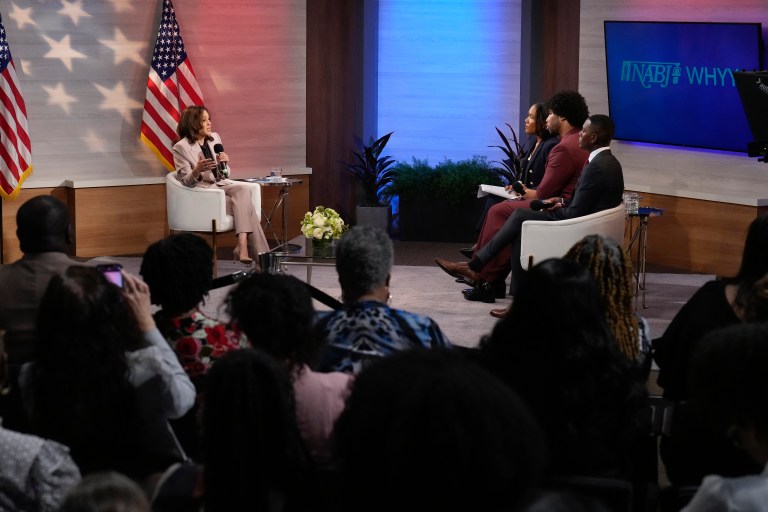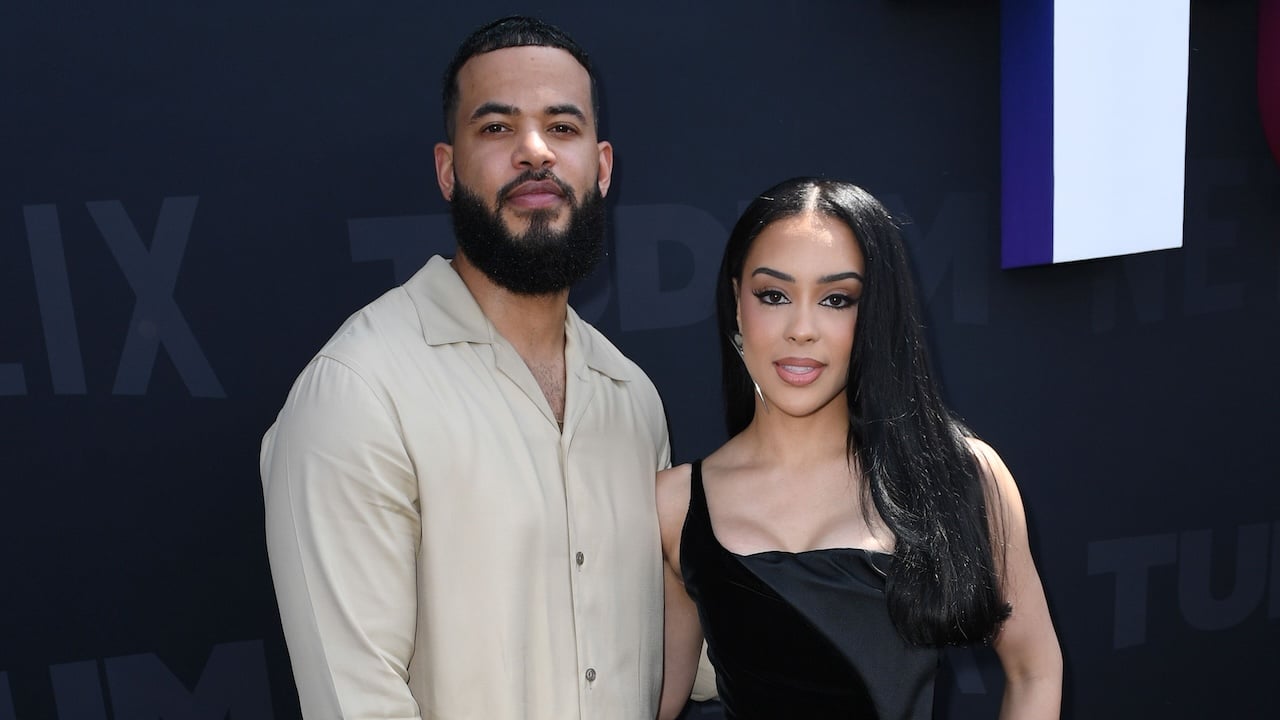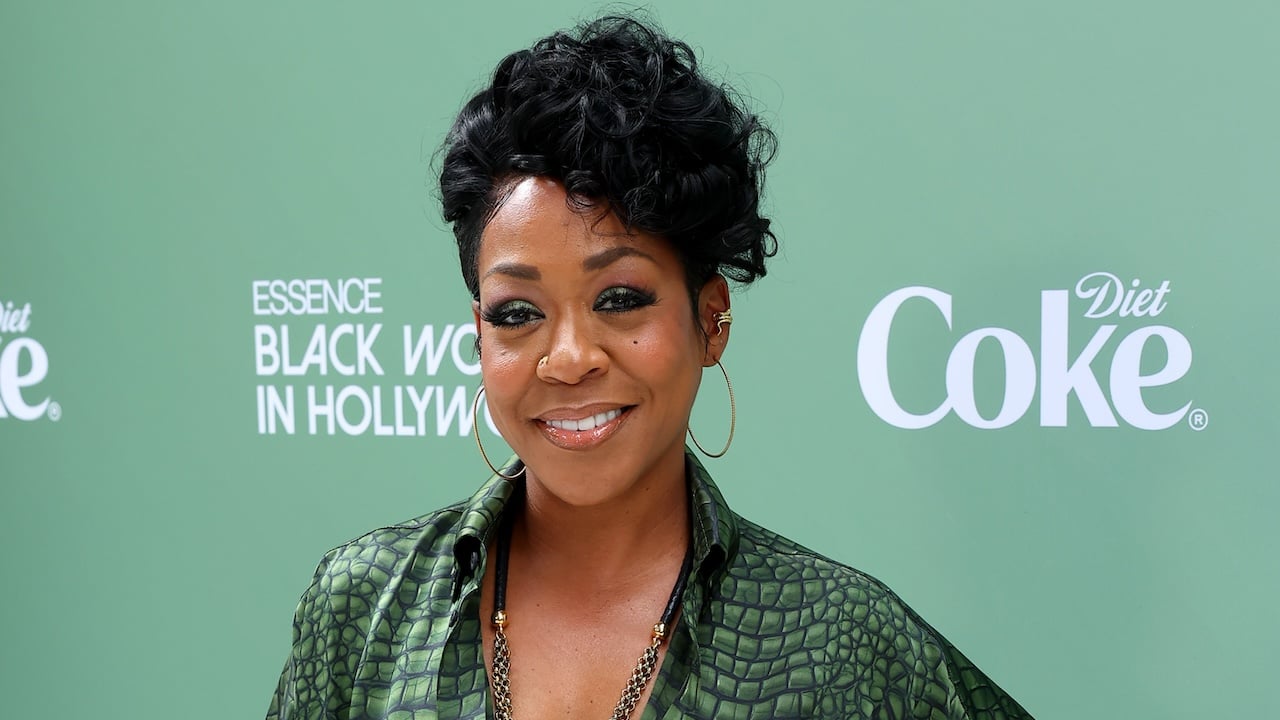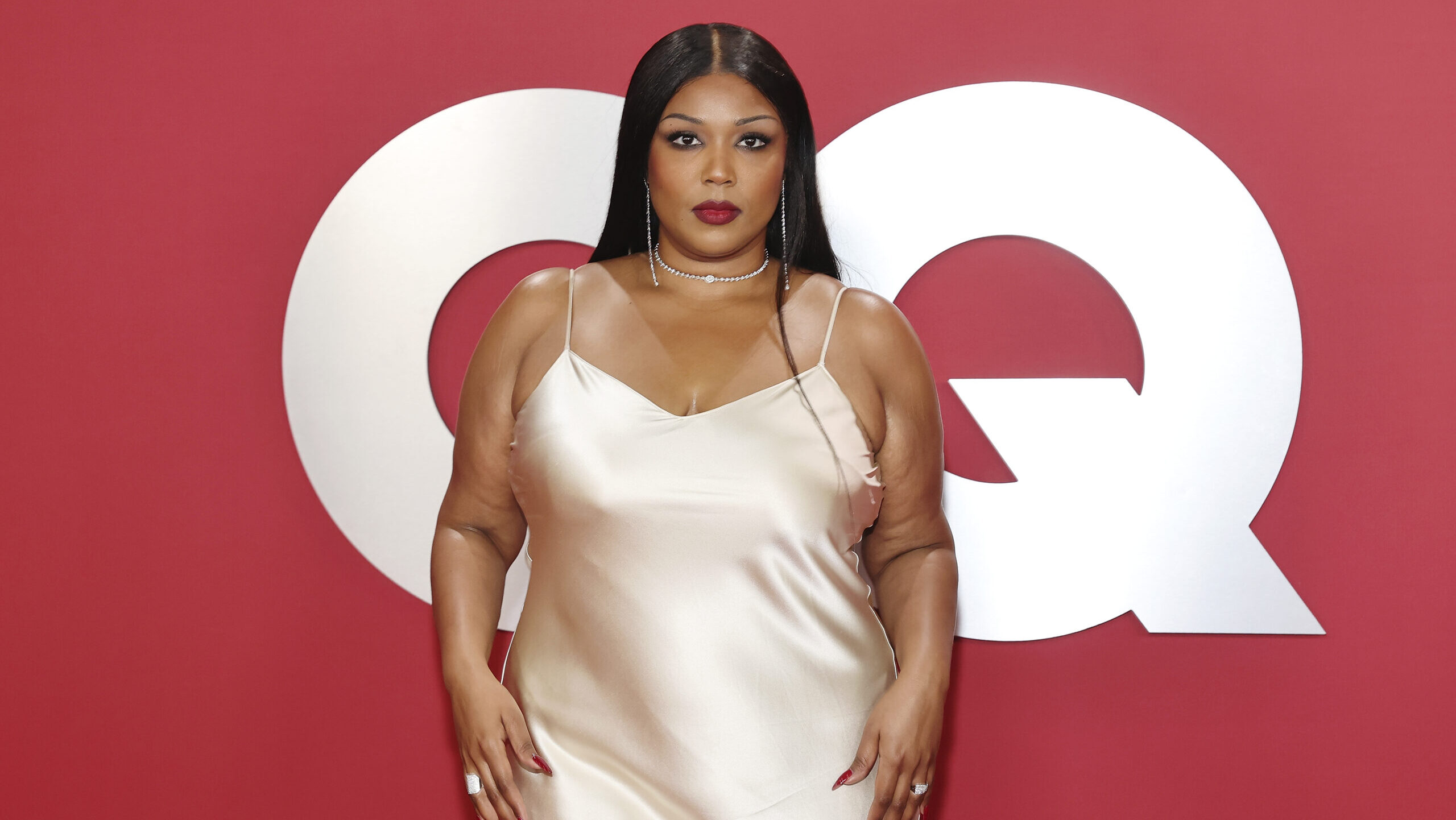During a wide-ranging interview with the National Association of Black Journalists and WHYY public radio, Vice President Kamala Harris talked about race more extensively than she had since emerging as a presidential candidate and, subsequently, the Democratic Party’s nominee.
The historic presidential figure (Harris is the first Black woman and Indian American to be a major party nominee) discussed reparations for the first time as vice president and outlined the systemic harms to Black communities caused by the United States history of the enslavement of African Americans and racial oppressive laws.
“We just need to speak truth about history. In spite of the fact that some people try and erase history and try and teach our children otherwise,” Harris told theGrio during the 45-minute sit-down interview in Philadelphia on Tuesday. “We need to speak truth about the generational impact of our history in terms of the generational impact of slavery, the generational impact of of redlining, of Jim Crow laws.”
Harris was responding to theGrio’s questioning of her position on H.R.40, a 35-year-old bill that would create a commission to study the history of slavery and racial discrimination and establish legislative ways to redress it.
“We need to speak truth about it in a way that is about driving solutions,” said Harris, who co-sponsored H.R.40 when she was a U.S. senator.
Though members of the Congressional Black Caucus and advocates have called on President Joe Biden to take executive action in the absence of three decades of inaction on Capitol Hill, the presidential hopeful signaled she believed it should happen through Congress. She cited the ability of Congress to hold hearings and “elevate” knowledge about the history of slavery and racial discrimination.
However, the vice president added, “I’m not discounting the importance of any executive action.”
Tying it back to her economic plan for if she wins the White House in November, Harris said her ideas to create an “opportunity economy” will seek to address “explicitly the obstacles that historically and currently exist” in areas like student loan debt, medical debt, bias home appraisals and Black maternal mortality.
U.S. Rep. Barbara Lee, D-Calif., along with the late Rep. Sheila Jackson Lee of Texas, has championed bills like H.R. 40 and another bill that would establish a U.S. Commission on Truth Racial Healing and Transformation. In an exclusive statement for theGrio, Lee applauded Harris for her nod to the need to seek reparative solutions to the impact of slavery and discrimination.
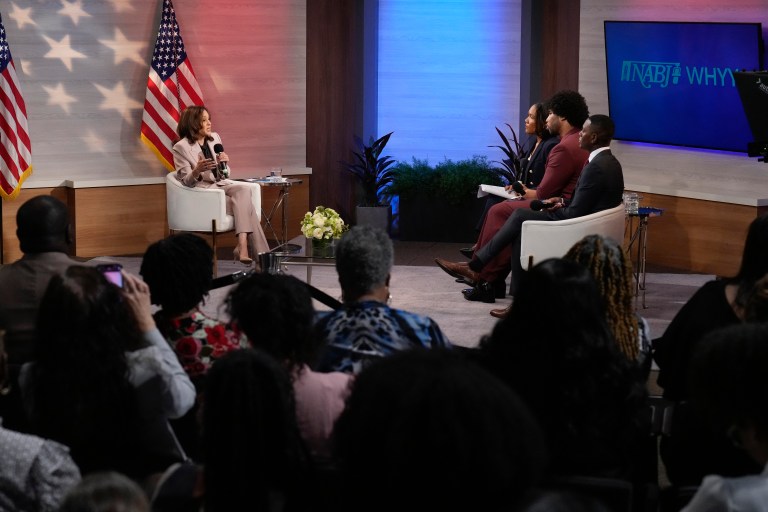
“I am pleased that Vice President Harris acknowledged the important role truth plays in our quest for racial healing and transformation,” said Lee. “My legislation to establish a commission on Truth, Racial Healing, and Transformation would usher in a truth-telling moment, educating and informing the public about the historical context for the current racial inequalities we witness each and every day.”
Marcus Anthony Hunter, chair of African-American studies at UCLA and who helped draft Lee’s commission on Truth, Healing and Transformation, told theGrio he “found the exchange really meaningful.”
He added, “It’s the first time we’re getting answers and a discussion on record.”
Hunter and other advocates who worked with Lee and Jackson Lee had long grown frustrated with the lack of progress on creating a reparations commission, despite states like New York and California and local municipalities passing similar commissions.
But Hunter said despite Harris’ apparent preference for congressional action on creating the commission, such a commission via executive action “can be the resource for the legislative policy.” He continued,
“Executive commissions have also had hearings as well. So there is, I think, a complimentary nature of executive action around issues like reparations and reparative justice that are important,” said Hunter. “I think we were hearing the beginnings of an acknowledgment around that, but hopefully it’s just the beginning of a broader, you know, interest in an appetite in this area.”
Despite what appeared to be an aim not to focus her presidential campaign on her racial identity and race more broadly — instead focusing on themes of unity and moving “forward” — Harris leaned in on race in ways she hadn’t prior to Tuesday’s interview with Black journalists.
Though she declined to comment during a CNN interview two weeks ago about her Republican presidential opponent Donald Trump’s false claim that Harris, who is of Jamaican and Indian descent, “turned Black” for political purposes, Harris on Tuesday said plainly, “I’m Black” when answering a question from theGrio about courting Black men voters. The vice president said she had to “earn” their vote and didn’t expect their support simply because she is a Black woman.
Political pundit and radio host Reecie Colbert acknowledged Harris’ “reluctance” during her CNN interview and the presidential debate against Trump to talk about her racial identity.
“One thing about her is she wants to do things on her own terms. She wants to have the conversation on her own terms,” Colbert told theGrio.


